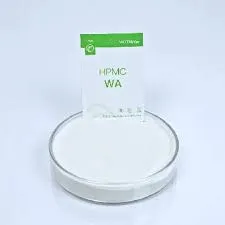
Nov . 18, 2024 23:30 Back to list
Properties and Applications of Hydroxyethyl Cellulose in Various Industries
The Versatile Applications of Hydroxyethyl Cellulose
Hydroxyethyl cellulose (HEC) is a non-ionic, water-soluble polymer derived from cellulose, a natural biopolymer obtained from plant cell walls. This versatile compound has gained significant attention in various industries due to its unique properties. Its ability to form gels and create flexible films makes it an invaluable ingredient in formulations ranging from cosmetics to construction materials.
The Versatile Applications of Hydroxyethyl Cellulose
Beyond cosmetics, hydroxyethyl cellulose plays a crucial role in the pharmaceutical industry. It can be found in various drug formulations, including topical gels and ointments. Its biocompatibility and non-toxic nature render it safe for use in pharmaceutical applications. HEC is also utilized as a controlled-release agent, allowing for the gradual release of therapeutic compounds in the body. This property is particularly beneficial in developing sustained-release formulations, which enhance the efficacy of medications while minimizing side effects.
hydroxyéthyl cellulose

In the construction industry, hydroxyethyl cellulose is valued for its rheological properties. It is commonly added to cement-based products, such as mortars and adhesives, improving their workability and performance. HEC helps maintain the appropriate consistency before curing and reduces water segregation, thereby ensuring durability in finished products. Its role as a binder also enhances adhesion and reduces cracking in construction materials.
Moreover, hydroxyethyl cellulose finds applications in the food industry as a thickening agent and stabilizer. It can improve the texture and shelf life of various food products, including sauces, dressings, and dairy products. Its ability to enhance mouthfeel makes it a preferred choice for food formulators aiming to improve the overall sensory experience for consumers.
In conclusion, hydroxyethyl cellulose is a versatile polymer with a wide array of applications across multiple industries. Its thickening, stabilizing, and moisture-retaining properties make it indispensable in cosmetics, pharmaceuticals, construction, and food products. As research continues to explore its potential, HEC is likely to find even broader applications, further solidifying its importance in modern formulations.
-
Versatile Hpmc Uses in Different Industries
NewsJun.19,2025
-
Redispersible Powder's Role in Enhancing Durability of Construction Products
NewsJun.19,2025
-
Hydroxyethyl Cellulose Applications Driving Green Industrial Processes
NewsJun.19,2025
-
Exploring Different Redispersible Polymer Powder
NewsJun.19,2025
-
Choosing the Right Mortar Bonding Agent
NewsJun.19,2025
-
Applications and Significance of China Hpmc in Modern Industries
NewsJun.19,2025







